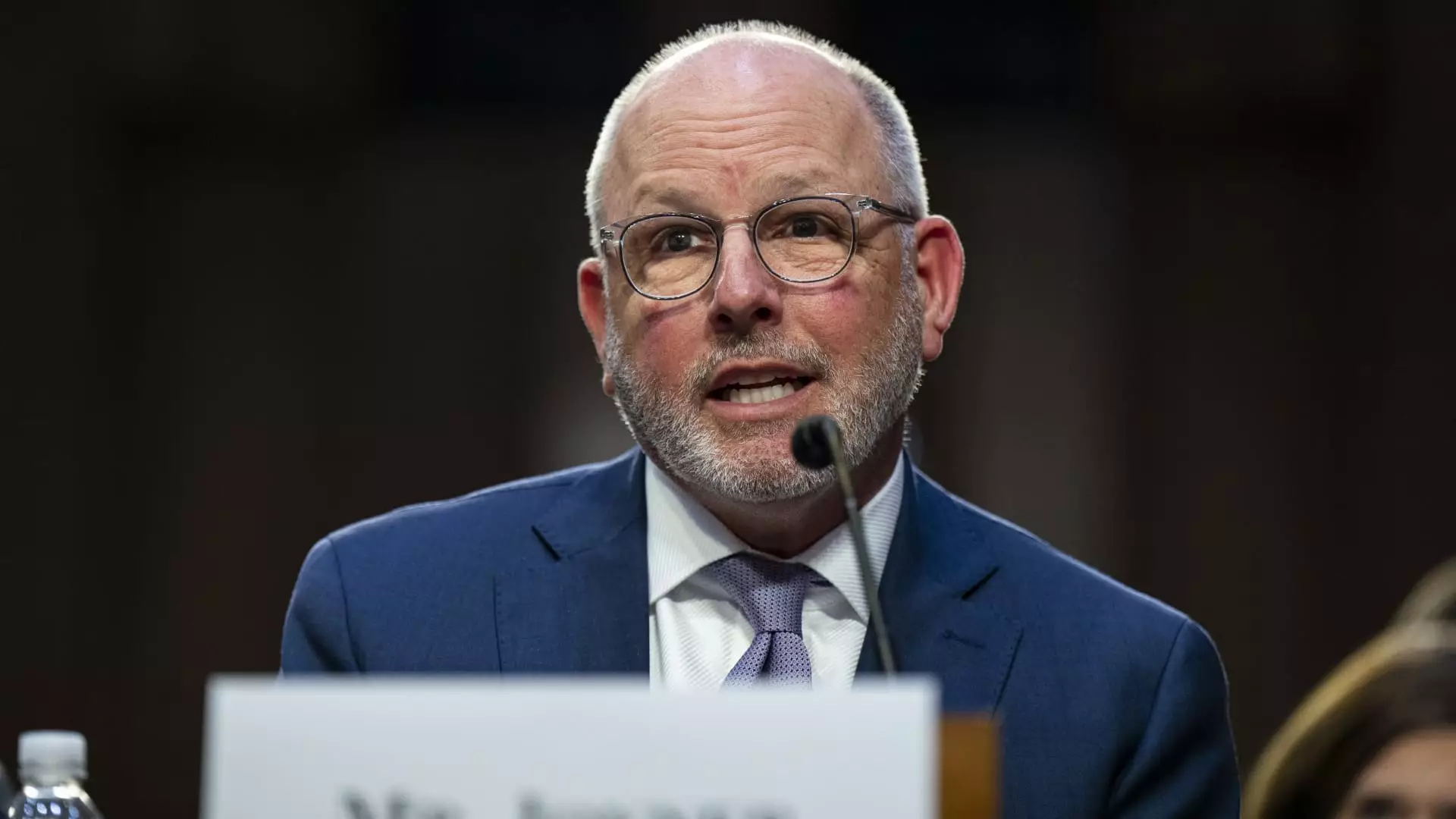The recent appointment of David Joyner as CEO of CVS Health marks a significant turning point for the company as it grapples with mounting challenges in profitability and stock performance. This shift in leadership signifies not only an internal restructuring but also a strategic response to external market pressures that have weighed heavily on CVS’s operations. As Joyner takes the helm, he faces a complex landscape in the healthcare sector, complicating his mission to steer the company back to a healthier financial trajectory.
Joyner’s ascendancy to the CEO position follows the resignation of Karen Lynch, who had held the role since February 2021. This leadership change was necessitated by a troubling decline in CVS’s stock price, which has plummeted almost 20% this year alone. The company disclosed alarming figures, including a significant drop of 11% in premarket trading on the day of the announcement, highlighting the urgency for change at the top. CVS has acknowledged ongoing difficulties, primarily tied to sluggish consumer spending and increased medical costs. The latter has particularly impacted its insurance unit, Aetna, strengthening arguments for a leadership change.
In response to these economic pressures, CVS has issued profit warnings for three consecutive quarters and announced an aggressive plan to cut $2 billion in operational costs over the coming years. According to a statement issued by the company, adjusted earnings for the third quarter are projected to fall between $1.05 and $1.10 per share, in line with expectations of rising medical costs. This downward projection illustrates the magnitude of the challenge facing Joyner as he steps into his new role.
Industry Pressures and Strategic Shifts
CVS’s complexities are compounded by external pressures from lawmakers and the Biden administration, particularly concerning the operations of pharmacy benefits managers (PBMs) such as Caremark, which Joyner spearheaded before his promotion. Recent legal actions, including a lawsuit from the Federal Trade Commission targeting Caremark’s practices, spotlight the scrutiny facing PBMs amid rising drug costs, notably in insulin. Joyner’s previous experience within the organization could be both an asset and a liability as he navigates these choppy waters, translating industry insight into competitive strategies while contending with public concern over affordability and healthcare access.
The pressure on CVS is not solely external; it also stems from its operational dynamics. The company’s management anticipates that the medical benefit ratio—reflecting total medical expenses against received premiums—will reach an unsettling 95.2% for the current quarter, a notable increase from 85.7% the prior year. This uptick reflects the difficulties in managing costs effectively and suggests a need for significant operational improvement.
Joyner’s Experience and Vision
David Joyner’s return to CVS follows a notable career encompassing various roles within the organization, including stints at Aetna and Caremark. His familiarity with the company may allow him to implement strategies tuned to its unique operational needs. Joyner’s previous work focused on enhancing pharmacy benefit services, which positions him well to streamline operations in light of heightened scrutiny from regulators.
In remarks following the announcement, Joyner expressed a renewed commitment to advancing CVS’s mission. Highlighting his return as a reflection of his belief in the company’s potential, he aims to leverage his insights to tackle the multifaceted challenges that lie ahead. His leadership style will be under close scrutiny, given Lynch’s tenure was marred by stock underperformance and financial forecasting issues.
As CVS gears up for its third-quarter earnings release on November 6, all eyes will be on Joyner’s approach to addressing the elevated medical costs that have undermined performance. The company’s plan to improve margins in the Medicare Advantage business by 100 to 200 basis points next year will be critical. Investors and stakeholders will look for tangible signs of progress as CVS navigates through this transition.
Additionally, the company must reassess its market positioning relative to emerging consumer health trends and the persistent challenges from competitors within the pharmacy and health insurance sectors. Joyner’s leadership will be pivotal in ensuring that CVS not only stabilizes but also redefines its role within an increasingly complex healthcare landscape.
The future for CVS Health as outlined in this leadership transition will depend heavily on how effectively David Joyner can harness his experience and the insights gained from his earlier roles. In a rapidly evolving industry marked by volatility and scrutiny, CVS seeks to regain its footing—a task that will require both adept management and strategic foresight.

